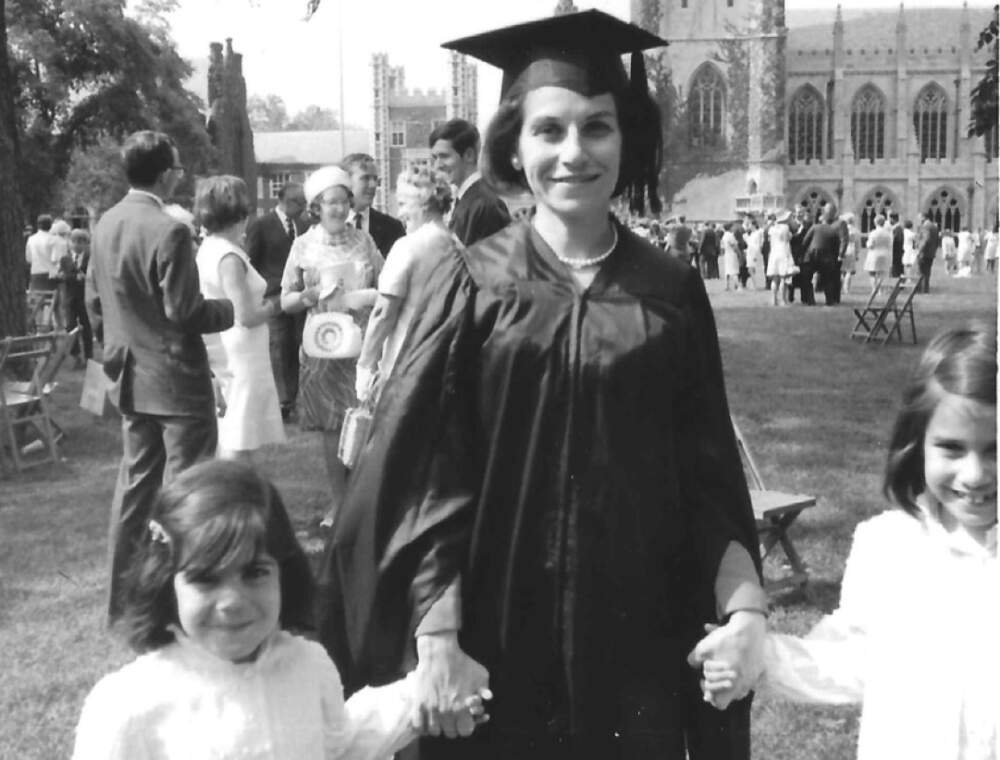Blood
‘Language is blood; language is family’ — even if I’m losing my Spanish
For over a decade, I have been deeply unsettled that I have been losing my grasp on Spanish. In the cold, hard light of my dwindling fluency, I have been hurtling towards becoming a “No Sabo Kid.” The relatively new term is alternately teasing, derisive and half-ironic, applying to people of Latinx heritage who either don’t speak Spanish or do so poorly. No sabo is the incorrect first-person conjugation of the verb “to know,” saber. The actual word is “se” as in “no se” — “I don’t know.”
Language is blood; language is family. My relatives were among the Cubans fleeing Castro in the early 1960s. They arrived in Connecticut one harsh winter, where my Cubana mother had settled with my American father. My dad spoke a halting, gringo-inflected Spanish. So we fell into speaking exclusively English at home.
I, the oldest grandchild, learned Spanish from my maternal grandparents who never learned English. As their language broker, I seamlessly switched back and forth between English and Spanish. I translated soap operas for Abuela, and for Abuelo, I negotiated transactions at the pharmacy and grocery store, where he bought me endless packets of M&Ms.
Language is blood; language is family.
I reached the peak of my Spanish fluency the summer I was 9 and spent two months with relatives in Little Havana in Miami. It had been a decade since Castro took power, and I was keenly aware that we Cubanos were cut off from Cuba by a contradictory yet imaginary, impenetrable Iron Curtain. This inaccessibility transformed Cuba into a utopian island.
In her country’s isolation, my mother inflated its mysteriousness and wonder. As my relatives constantly pointed out, Key West was 90 miles from Havana’s shore. Ninety miles was shorthand for how impossibly close yet maddeningly far Cuba was to us. It was the ex-pats’ rallying cry to return.
By my freshman year of high school, I still had my Little Havana Spanish, qualifying me to enter a third-year class of Spanish. Until that point, I had not formally studied the language. The teacher’s Spanish was more gringo-shellacked than my father’s, and she flinched whenever I answered her in accentless Spanish. I continued to study Spanish in college, where I graduated to read classics in the language. Yet, with my grandparents no longer alive, I noticed an Iron Curtain rust creeping into my conversational Spanish.
After college, I moved to New York and was thrilled that Spanish was everywhere in the city. On the subway, I tested my language competency by reading the Spanish language ads and eavesdropping on the Latinx girls my age gossiping. I loved being surrounded by Spanish and felt like an insider. Having a second language at the ready was also alluring to the guys I dated. Once a secret language between my mother and me, Spanish had finally emerged into the daylight. We, the Latinx, had arrived.
Although my fellow Latine almost always recognize my Cuban accent, they do not know my shameful secret; I cannot carry on a nuanced conversation in Spanish.
Amidst celebrating Latinx and Hispanic Heritage Month, Sept. 15 – Oct. 15, it jars me to be losing my Spanish. I often think about the thrilling statistic that in 2050, 1 in 3 people in the United States will be Spanish speakers. Although my fellow Latine almost always recognize my Cuban accent, they do not know my shameful secret; I cannot carry on a nuanced conversation in Spanish.
My vocabulary has reverted to that of a fourth grader. I speak what I call “kitchen Spanish” — the ambient sound of the banter of my abuela’s kitchen. These days, when I dare to speak Spanish, I qualify it with the idiom me defiendo — “I defend myself,” signaling that speaking Spanish is a struggle for me. Yet I have enough of the basics to make myself understood.
For the past decade, I’ve been increasingly speaking Spanglish — an idiosyncratic melding of Spanish and English words. Linguists have a term for what happens to a once-proficient speaker like me losing their heritage language — language attrition. Yet rather than feeling good about preserving remnants of Spanish, Spanglish makes me think I have relegated myself to a linguistic no-person’s land, where I don’t do justice to speaking either language. These days, I speak a version of Spanglish with my mother that still leans more towards Spanish. Her dementia is progressing; she’s forgetting English, making it imperative for me to recoup my Spanish.
The “no sabo” signifier continues to lurk for me. I feel that I fraudulently pass with my Cuban accent. I know my grammar is in tatters, my fluency slipping by the day. Yet I remain fiercely Latinx. And so, we Latine at all levels of fluency, need to make room for the “no sabo,” Spanglish-speaking kids at the gorgeously diverse Latinx table.

